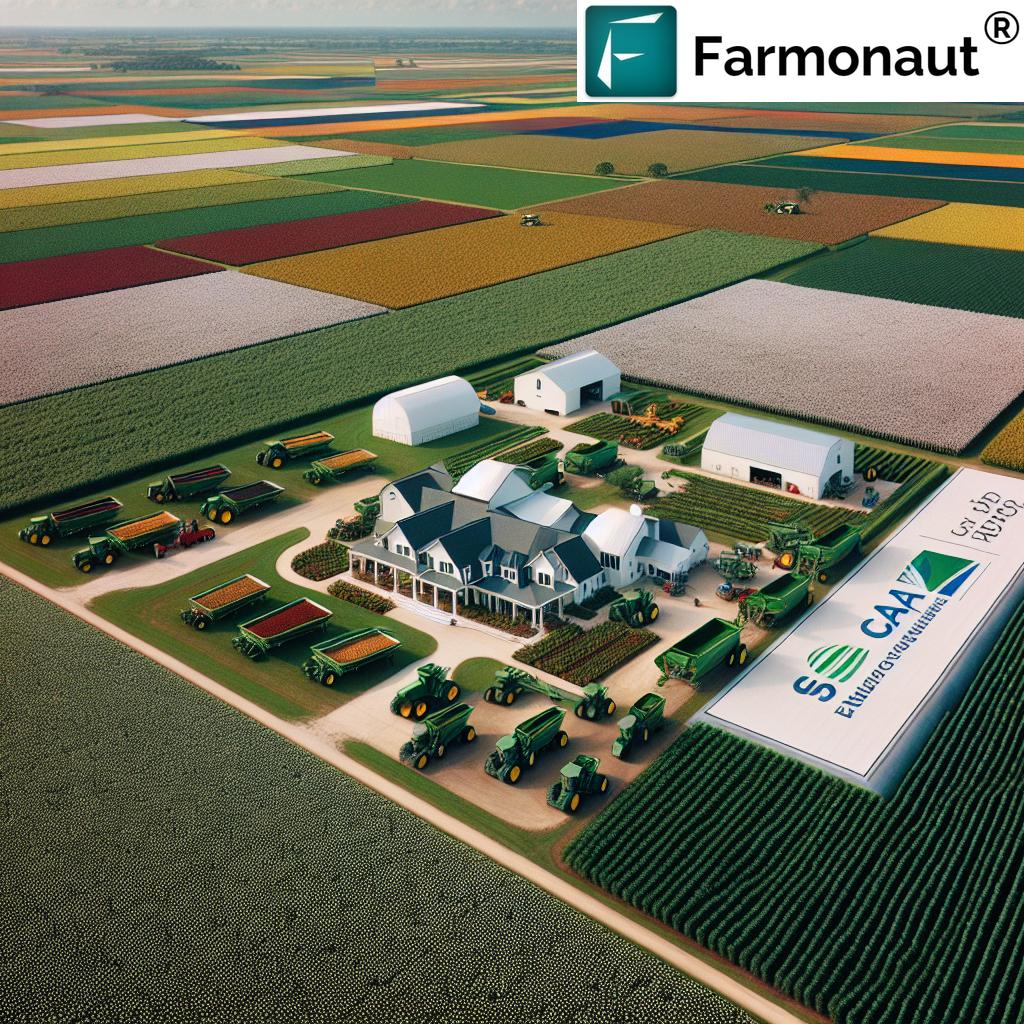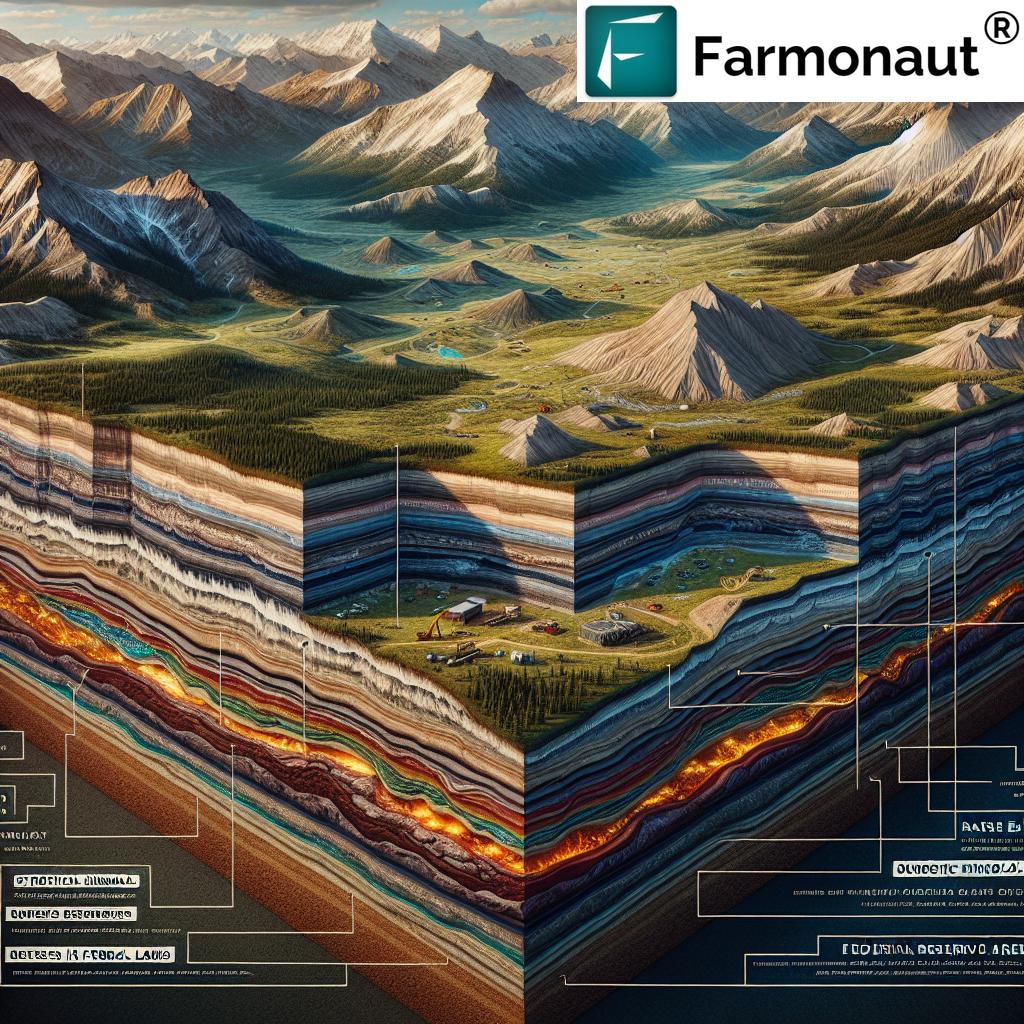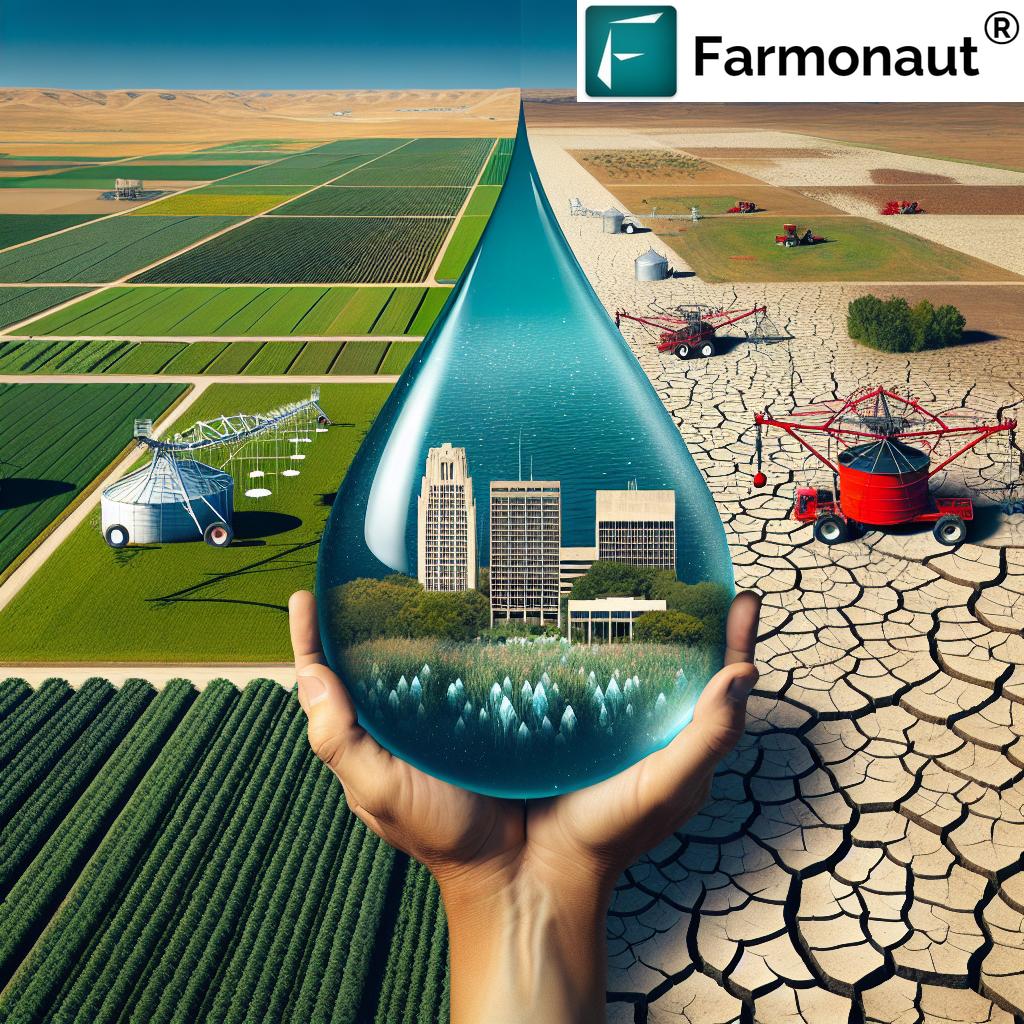Revolutionizing Wastewater Treatment: California’s Sustainable Approach to Resource Recovery and Renewable Energy
“California’s innovative wastewater facility processes millions of gallons of wastewater and food waste daily, generating clean energy.”
In the heart of California’s east valley, a groundbreaking expansion in wastewater treatment operations is taking place, setting new standards for sustainable waste management and renewable energy from wastewater. At Farmonaut, we’re excited to explore this revolutionary approach that’s transforming the agriculture sector and paving the way for a more sustainable future.
This state-of-the-art facility showcases innovative anaerobic digestion technology, demonstrating the power of resource recovery in agriculture. By processing millions of gallons of wastewater and food waste daily, this project is not just treating waste – it’s creating valuable resources and clean energy solutions.
The Power of Anaerobic Digestion in Wastewater Treatment
At the core of this revolutionary facility is the use of advanced anaerobic digestion technology. This process breaks down organic matter in the absence of oxygen, producing biogas – a renewable energy source rich in methane. Here’s how it works:
- Wastewater and organic waste are collected and pre-treated
- The mixture is fed into large, oxygen-free tanks called digesters
- Microorganisms break down the organic matter, producing biogas
- The biogas is captured and purified for use as renewable natural gas (RNG)
- Remaining solid material can be used as fertilizer for crops
This innovative approach not only treats wastewater effectively but also generates clean energy and valuable byproducts, creating a circular economy model within the waste management sector.
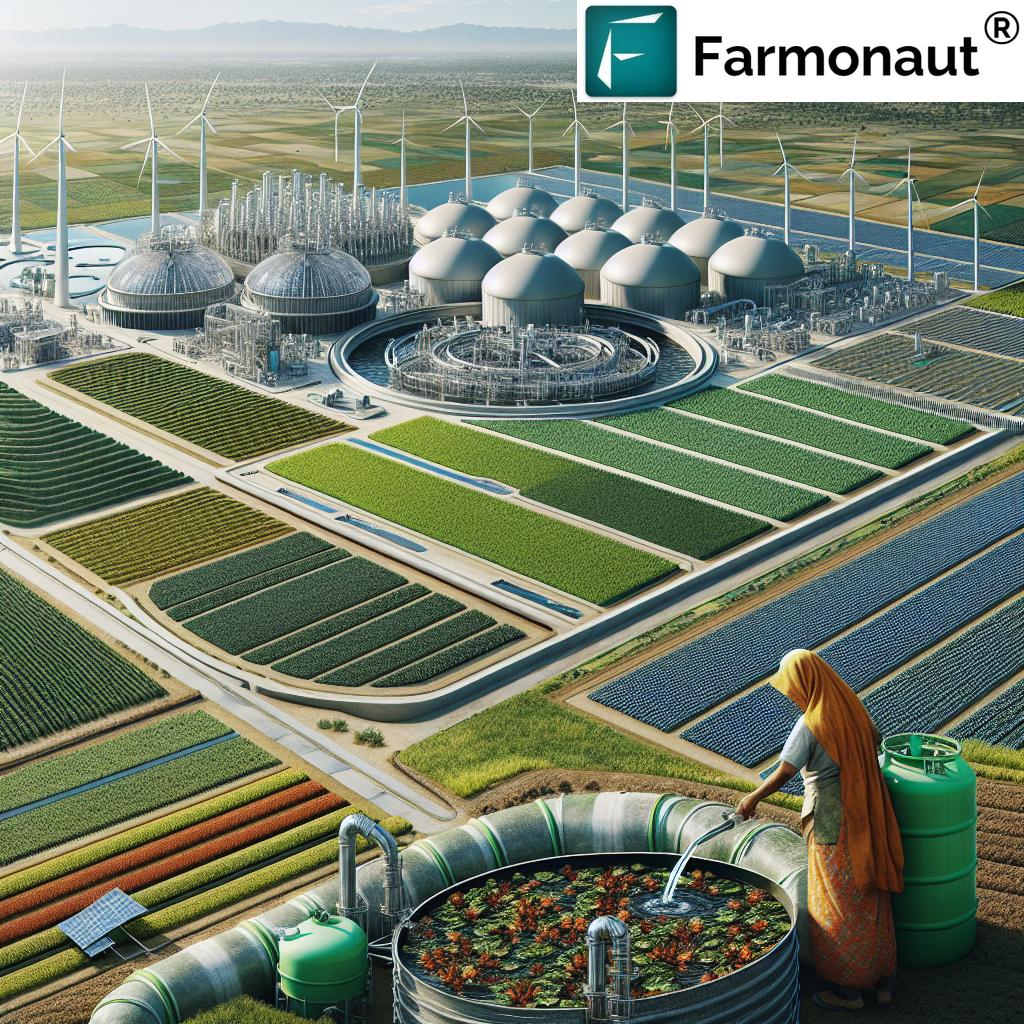
Integrating Food Waste Processing with Wastewater Treatment
One of the most innovative aspects of this facility is its integration of food waste processing with traditional wastewater treatment. This approach offers several benefits:
- Increased biogas production due to higher organic content
- Reduction in landfill waste and associated greenhouse gas emissions
- Creation of a sustainable cycle of energy production and waste management
- Support for local communities in managing both wastewater and food waste
By combining these waste streams, the facility maximizes resource recovery and energy generation, setting a new standard for sustainable waste management practices.
The Impact on Agriculture and Farming Communities
This wastewater treatment innovation has significant implications for the agricultural sector. Farmers and agricultural communities can benefit in several ways:
- Access to clean, renewable energy sources
- Availability of high-quality, nutrient-rich fertilizer from digested materials
- Improved water quality for irrigation through advanced treatment processes
- Reduced environmental impact of agricultural waste
At Farmonaut, we recognize the potential of these technologies to revolutionize farming practices. Our satellite-based farm management solutions complement these advancements, offering farmers tools to optimize resource use and improve crop health.
Biogas Production and Clean Energy Solutions
The biogas production at this facility is a game-changer in the realm of clean energy solutions. Here’s why it’s so significant:
- Renewable source of natural gas, reducing reliance on fossil fuels
- Lower carbon footprint compared to traditional energy sources
- Potential for use in power generation, heating, and as vehicle fuel
- Creates a local, sustainable energy ecosystem
This approach to energy generation aligns perfectly with California’s ambitious renewable energy goals and sets an example for other regions to follow.
Groundwater Replenishment Techniques
Another crucial aspect of this facility is its focus on groundwater replenishment techniques. In a state like California, where water scarcity is a persistent issue, these techniques are vital:
- Advanced treatment processes produce high-quality water suitable for aquifer recharge
- Helps maintain groundwater levels, crucial for agriculture and ecosystems
- Reduces reliance on surface water sources, improving overall water resilience
- Creates a sustainable water cycle within the community
These techniques not only support local water needs but also contribute to long-term environmental sustainability.
“The anaerobic digestion technology in California’s east valley transforms organic waste into biogas, supporting groundwater replenishment techniques.”
Resource Recovery in Agriculture: A New Paradigm
Resource recovery in agriculture is at the heart of this innovative project. By turning waste streams into valuable resources, the facility demonstrates a new paradigm in agricultural sustainability:
- Nutrient-rich digestate from the anaerobic process serves as an excellent fertilizer
- Recovered water can be used for irrigation, reducing strain on freshwater sources
- Energy produced can power farm operations, creating a self-sustaining cycle
- Reduction in waste disposal costs for farmers and food processors
This approach not only benefits individual farmers but also strengthens the entire agricultural ecosystem.
The Role of Technology in Sustainable Farming Practices
As we at Farmonaut continue to innovate in the field of agricultural technology, we see the immense potential in combining our satellite-based solutions with these advancements in waste management:
- Precision agriculture techniques can optimize the use of recovered resources
- Satellite monitoring can help track the impact of sustainable practices on crop health
- Data-driven insights can guide farmers in implementing circular economy principles
- Integration of waste management data with crop management systems for holistic farm planning
Our commitment to making precision agriculture accessible aligns perfectly with the goals of this innovative wastewater treatment facility.
Environmental Benefits and Sustainability
The environmental benefits of this approach to wastewater treatment and resource recovery are significant:
- Reduction in greenhouse gas emissions from traditional waste management practices
- Conservation of water resources through advanced treatment and reuse
- Decreased reliance on chemical fertilizers, promoting soil health
- Mitigation of water pollution from agricultural runoff
- Support for biodiversity through improved ecosystem health
These benefits contribute to a more sustainable and resilient agricultural sector, aligning with global efforts to combat climate change and promote environmental stewardship.
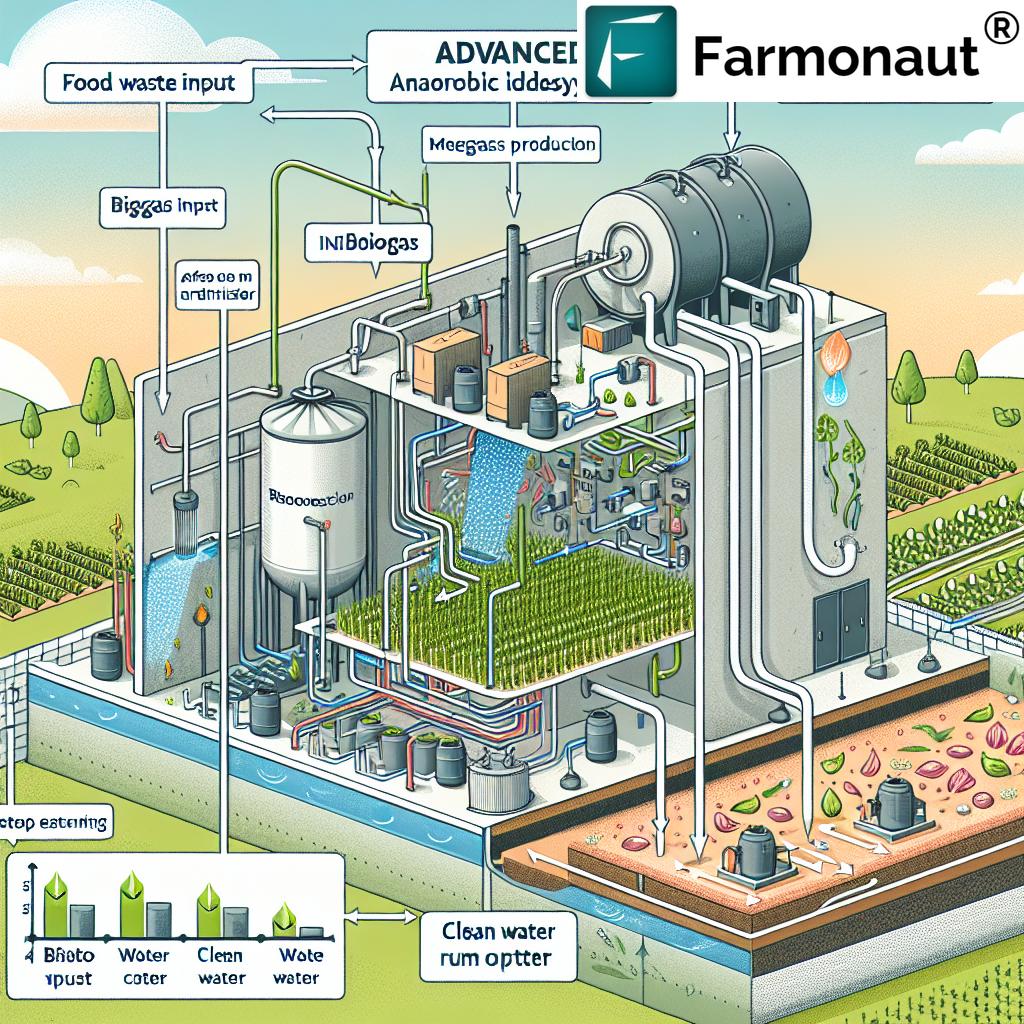
Economic Implications for Farmers and Communities
The economic implications of this innovative approach are far-reaching:
- Reduced costs for waste management and energy for farmers
- New revenue streams from the sale of excess energy and biofertilizers
- Job creation in the renewable energy and waste management sectors
- Increased property values due to improved environmental conditions
- Potential for eco-tourism and educational opportunities
These economic benefits can help revitalize rural communities and support the long-term viability of farming operations.
Challenges and Future Developments
While the benefits are clear, there are challenges to implementing these technologies on a wider scale:
- High initial investment costs for infrastructure development
- Need for specialized training and expertise in anaerobic digestion technology
- Regulatory hurdles in some regions regarding the use of recovered resources
- Public perception and acceptance of waste-to-energy technologies
However, as the technology matures and its benefits become more widely recognized, we anticipate these challenges will be overcome, leading to broader adoption across California and beyond.
The Future of Sustainable Agriculture
As we look to the future, the integration of advanced wastewater treatment, resource recovery, and precision agriculture technologies holds immense promise:
- Closed-loop agricultural systems with minimal external inputs
- Smart cities with integrated waste management and energy production
- Widespread adoption of circular economy principles in farming
- Increased resilience to climate change and resource scarcity
At Farmonaut, we’re excited to be part of this evolution, providing farmers with the tools they need to thrive in this new era of sustainable agriculture.
Comparison of Conventional vs. Advanced Wastewater Treatment Technologies
| Treatment Method | Energy Production | Resource Recovery | Environmental Impact |
|---|---|---|---|
| Conventional Activated Sludge | Low (Net energy consumer) | Limited (Primarily sludge) | Moderate (High energy use, limited recovery) |
| Advanced Anaerobic Digestion | High (Net energy producer) | Extensive (Biogas, fertilizer, water) | Low (Energy production, high resource recovery) |
| Integrated Food Waste Processing | Very High (Enhanced biogas production) | Comprehensive (Biogas, fertilizer, water, reduced landfill waste) | Very Low (Circular economy model) |
Note: The advanced anaerobic digestion system with integrated food waste processing, as implemented in the California facility, can process millions of gallons of wastewater daily, potentially generating enough biogas to power thousands of homes and significantly reduce the facility’s carbon footprint.
Conclusion
The revolutionary wastewater treatment facility in California’s east valley represents a significant leap forward in sustainable waste management and renewable energy production. By harnessing the power of anaerobic digestion technology and integrating food waste processing, this project demonstrates the immense potential for resource recovery in agriculture.
As we at Farmonaut continue to innovate in the field of satellite-based farm management, we see tremendous opportunities for synergy between these advanced waste treatment technologies and precision agriculture. Together, these advancements are shaping the future of sustainable farming practices, offering solutions to some of the most pressing challenges facing agriculture today.
We encourage farmers, policymakers, and industry leaders to take note of this groundbreaking project and consider how similar approaches could be implemented in their own regions. The path to a more sustainable, resilient, and productive agricultural sector is clear – and it starts with embracing innovative technologies and circular economy principles.
FAQ Section
Q: What is anaerobic digestion technology?
A: Anaerobic digestion is a process that breaks down organic matter in the absence of oxygen, producing biogas and nutrient-rich digestate. It’s used in advanced wastewater treatment to generate renewable energy and recover valuable resources.
Q: How does this technology benefit farmers?
A: Farmers can benefit from access to clean energy, high-quality fertilizers, improved water quality for irrigation, and reduced waste management costs. It also supports sustainable farming practices and can create new revenue streams.
Q: What role does Farmonaut play in sustainable agriculture?
A: Farmonaut provides satellite-based farm management solutions that complement these wastewater treatment innovations. Our technology helps farmers optimize resource use, monitor crop health, and implement precision agriculture techniques.
Q: How does this facility contribute to groundwater replenishment?
A: The facility uses advanced treatment processes to produce high-quality water suitable for aquifer recharge. This helps maintain groundwater levels, crucial for agriculture and ecosystems, especially in water-scarce regions like California.
Q: What are the environmental benefits of this approach?
A: The environmental benefits include reduced greenhouse gas emissions, conservation of water resources, decreased reliance on chemical fertilizers, mitigation of water pollution, and support for biodiversity through improved ecosystem health.
For more information on how Farmonaut can help you implement sustainable farming practices and optimize your agricultural operations, visit our API page or check out our API Developer Docs.








